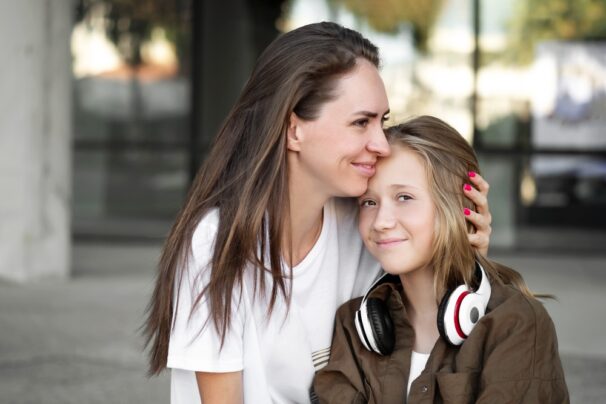Private ADHD assessments for children
If you think your child may have ADHD, an expert assessment will give you a clear answer. It will also enable us to help your child in the most positive way, guiding you to the treatment that will help them best.
All our child ADHD assessments and treatment sessions are carried out online and aim to help your child manage their symptoms, move forward with confidence and live fulfilling lives.
If you are a Bupa member please click here.

How our child ADHD assessment works
To be able to help your child in the most positive way, you first need to fully understand their neurodevelopmental makeup and needs. Our specialist team will conduct a thorough, expert child ADHD assessment to ascertain if your child does, or doesn’t have ADHD.
Learn what you can expect from our ADHD assessments for children below:
Screening
If you think that your child may have ADHD, our free screening process will give clarity and insight. It will be carried out by our psychology team, led by a consultant clinical psychologist.
If the results do indicate ADHD, we’ll recommend a diagnostic ADHD assessment for your child to give a definitive answer. We will refer you to a Onebright company, Psicon, who have been a leading provider of high quality diagnostic assessments, treatment and support for autism and ADHD for over 20 years.
Information gathering – school or pre-school report
So that we can understand your child’s behaviour in different social settings, we will ask their school to fill in a report form and an online screening questionnaire.
This helps our clinical team with their assessment and to understand your child’s strengths and needs better.
If your child is home-schooled this won’t affect the assessment. We’ll simply ask for a report from another suitable professional or someone who knows your child well, outside of the home.
Diagnostic assessment
Your child’s diagnostic assessment is carried out by either a clinical psychologist, consultant paediatrician or consultant child and adolescent psychiatrist.
All are experts in identifying ADHD in children and young people and we’ll make sure your child is under the care of the most appropriate professional for them.
During the assessment, the clinician will ask you and your child some questions about their strengths, needs, likes, and dislikes as well as their development. This will include information around key milestones in their early years.
Throughout the appointment, the clinician will also be discreetly observing your child’s mannerisms and behaviours. They will bring together all the information gathered from the screening, questionnaire stages and clinical review and assess it against the recognised (DSM-5) criteria. This will show whether, or not, a diagnosis of ADHD is appropriate.
Diagnostic report
As soon as the assessment is completed, we will share the outcome with you, along with recommendations on further support and/or treatment for your child. Our team will work together to bring all their learnings into a comprehensive report, which we’ll share with you. It will give a full explanation of the assessment and our findings in a clear and easy-to-understand way. It will include both our recommendations for further support and adjustments for at home and school.
For your added peace of mind, you may like to know that our assessments are fully NICE compliant. This means you can be sure that our diagnostic reports and outcomes are fully accepted by both the NHS and education systems.
Treatment and support
If the assessment results indicate that your child has ADHD, we will go through the menu of possible treatments with you. These can include medical, behavioural and psychological support options and we will help you select those you feel would work best for your child.
Signs of ADHD in children and young people
Although there are many things that children with ADHD share, every child’s brain is unique, so ADHD can be experienced in different ways. Knowing the common signs of ADHD in children can help identify whether your child requires further support.
Children with ADHD can present challenging behaviours if not fully understood. Common signs include:
- Difficulties staying focused
- Having trouble following instructions
- Being easily distracted
- Frequently interrupting others
- Finding it difficult to sit still
- Becoming hyper-focused when interested in something
- Daydreaming and creativity
- Carrying out risky behaviours
- Finding it hard to make friends

Begin your journey
If you are a Bupa member please visit onebright.com/bupa
Why choose Onebright
To be able to help your child in the most positive way, you first need to fully understand their neurodevelopmental makeup and needs. Our specialist team will conduct a thorough, expert assessment.
Convenient and timely
Tailored assessment and treatment around individual’s needs
You can be sure you’re in safe hands
Frequently asked questions
The only limits to confidentiality are when a client is at risk of harm (from themselves or from others), someone else may be at risk of harm, or if we are ordered to share information by a court (or where the service is open to legal proceedings if we do not share information)
If any of these situations are the case, we will always seek consent to share information wherever possible. Our usual practice is to share information about your assessment and treatment with your GP, unless there are valid reasons not to.
When working with children and young people, the same principles of confidentiality apply, and we will usually only share information with the young person’s parents or carers with consent. There may however be some situations where we need to share information with parents and carers without consent, for example if the child/young person is not able to consent to treatment themselves.
In September 2023, Psicon joined the Onebright family, the UK’s leading outpatient private mental health service. With our shared values, and a focus on clinical excellence and patient-centred care, we are very excited about the next chapter and what we can achieve together.
